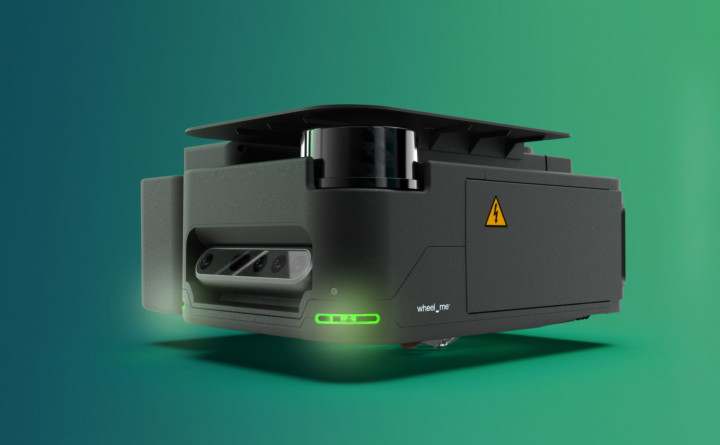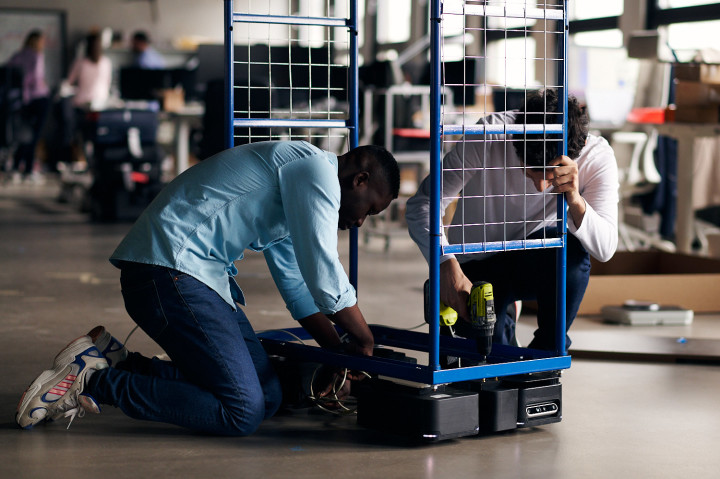wheel.me at Hannover Messe: Meet the world’s first autonomous wheel
March 27, 2023
on
on
We are in the age of possibilities where AI solutions, robots and new technologies seemingly pop out of thin air every day. Meanwhile, the industries with the tasks that arguably need automation the most – with the highest amounts of work-related injuries – are still mostly manual. The reason? A lack of innovation. For even though there’s a dire need of automation in industries that rely on moving objects, (such as manufacturing, logistics and health care) the automated material handling solutions that exist today are simply too expensive for companies to implement. In other words, there is a demand and there is an untapped market just waiting to be innovated.

If you want to see wheel.me Genius in action, you can see the wheels live, in all their autonomous glory, at Hannover Messe during April 17-21. If you want to meet the team, book a meeting by writing a short message to ben@wheel.me and stop by in Hall 6, stand E06.

Reinventing the wheel
In an attempt to meet this rising demand and solve this issue, the Norway-based company wheel.me has taken notes from the first great invention – the wheel – and reimagined it. Their smart wheels (humbly, but arguably fittingly named Genius) can, as the company’s tagline states, make just about anything autonomous. Instead of making costly robots designed to do specific tasks and move specific things, wheel.me makes robotic wheels that can be attached to existing objects and turn the objects themselves into autonomous robots.How does it work?
The patented smart wheels are the combination of robotics, cutting-edge indoor navigation technology and data analytics, and are as of now the first and only autonomous wheels in the world. The wheels work in configurations of four and are equipped with sensors and safety elements to allow them to run safely around people and dynamic obstacles. Maintenance and setup is easy - attach the wheels to an object, register them in the software, map the area, set up the mission, and you’re good to go. The wheels are fully autonomous (say goodbye to magnetic tape and pre-set paths) with strategically placed charging stations that allow them to charge themselves whenever an opportunity presents itself.
Robotics as a service
But the more one looks at the wheels’ technical features, the more we are driven back to the question of cost. Because even though the wheel.me solution is incredibly flexible, the technology that enables the wheels to achieve this must make them equally expensive, right? The answer is: yes, to an extent. But to circumvent the issue of cost, wheel.me offers its wheels as a service. This means that instead of buying them, companies can subscribe to a service that gives them everything they need to automate their processes - robots, software, mainetance. Hopefully, this flexible subscription-based solution will allow the wheels to finally get things rolling in the industries that need automation the most.If you want to see wheel.me Genius in action, you can see the wheels live, in all their autonomous glory, at Hannover Messe during April 17-21. If you want to meet the team, book a meeting by writing a short message to ben@wheel.me and stop by in Hall 6, stand E06.
Read full article
Hide full article


Discussion (0 comments)